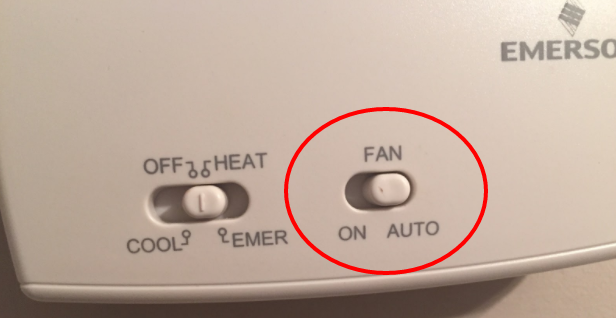In the summer, your home’s humidity level should be between 30%–45%.
If humidity levels are below that range, you’ll run into health issues like dry skin, and you could notice damage to wood fixtures in your home.
On the other hand, too much humidity can lead to mold and mildew, as well as trigger health issues like allergies, skin/eye irritation and respiratory problems. During summer months, you’re most likely to experience high indoor humidity.
In this article, we’ll cover 2 important summer humidity topics:
- How to measure your home’s indoor humidity level
- 3 easy tips to fight high indoor humidity
Let’s start with #1.
How to measure your home’s indoor humidity level
So how do you know if your home’s indoor humidity level is between 30%–45%?
The easiest way to measure humidity is to buy a Hygrometer. Hygrometers measure humidity from 0% (extremely dry) to 100% (very humid). You can usually find a cheap one at your local department store or online for about $15–$25.
Once you get a Hygrometer, you’ll want to run a quick test to make sure it’s working properly. The simplest way to test a Hygrometer for accuracy is to wrap a damp cloth around it and wait for a few hours. When you check it, it should read ~95%.
If you want a professional reading, you can invest in a psychrometer (an advanced Hygrometer) or contact a professional to perform a humidity reading for you. If you suspect your home is too humid, the latter may be the best option because the technician can recommend solutions to dehumidify your home.
Are your indoor humidity levels above 45%? Read on…
3 easy tips to fight high indoor humidity
During the summer, it’s common to fight high humidity—especially here in New Jersey. To get rid of high humidity in your home follow these 3 easy tips:
#1: Ventilate
Ventilating is the easiest way to fight indoor humidity. Make sure your exhaust fans are turned on when you shower or cook on the stovetop. Ventilating allows the moisture to exit the room.
#2: Keep your thermostat set to AUTO, not ON
Switch your thermostat to AUTO instead of ON
To avoid high humidity, set your thermostat to AUTO, not ON.
Here’s why: One of the purposes of your air conditioner is to dehumidify your home’s air. But if your thermostat is set to ON, your AC’s fan blows constantly, which means most of the moisture your AC extracts from the air doesn’t get a chance to drain away. So this moisture ends up getting blown back in your house.
Setting your thermostat to AUTO solves this problem because your AC’s fan only turns on when needed, which gives your AC system time to drain the moisture it collects from your home’s humid air.
If you suspect your AC isn’t dehumidifying your air properly, read our article “Air Conditioner Not Dehumidifying Well? A New Jersey Tech Explains Why.”
#3: Purchase a dehumidifier
Dehumidifiers lower the humidity levels inside your home. You can buy 3 common types of dehumidifiers:
- Desiccant dehumidifiers: These room-size dehumidifiers pull in air and pass it over a desiccant material such as a silica gel. Desiccants naturally absorb moisture (which is why you see little packets of silica gel in boxes of electronics or new shoes).
- Thermo-electric dehumidifiers: This type of portable dehumidifier uses a heat pump to remove the water vapor from humid air, then it heats the air and pushes dry, non-humid air back into the room.
- Whole-house dehumidifiers: If you’re looking for a solution for your entire house (not just 1 or 2 rooms), then you might consider a whole-house dehumidifier. These are installed into your home’s ductwork and can remove indoor humidity from every room in your home. Contact an HVAC professional for more information about whole-house dehumidifiers.
Want a New Jersey professional to help dehumidify your home for summer?
Contact us today and we’ll give you recommendations on dehumidifiers and make sure your air conditioner is working properly so it can reduce the humidity in your home.
We’ve been serving New Jersey homeowners since 1994.

